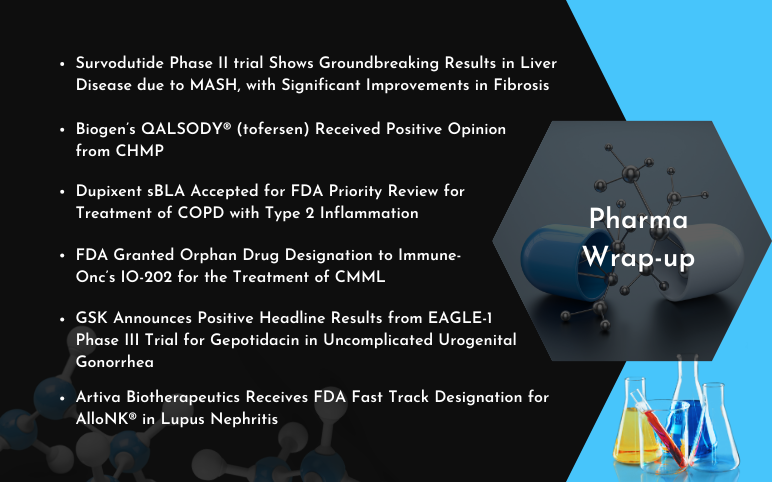GSK and iTeos Alliance Boosts Belrestotug Prospects in TIGIT Space
May 17, 2024
iTeos shares jump by 40%. GSK and iTeos collaboration for Belrestotug looks like a worthy wait. Hopes to ward off the negative sentiments around the volatile TIGIT space?
In the ever-evolving landscape of cancer immunotherapy, the pursuit of effective treatment strategies continues to drive innovation and investment. Following the success of PD-(L) 1, TIGIT emerged as one of the most promising and prospective targets, garnering significant interest and investment from key players in the field. Interest in TIGIT has exploded over the past 3 years, with Merck and Roche quickly expanding their clinical development programs, while Bristol Myers and Gilead/Arcus striking big deals to buy their way into the race.
One of the most notable advancements in the anti-TIGIT landscape was the collaboration between GlaxoSmithKline and iTeos Therapeutics, around the time of peak TIGIT mania in 2021, culminating in a USD 625 million deal for the anti-TIGIT monoclonal antibody Belrestotug (EOS-448), paying more initially than Bristol Myers and Gilead combined. Back then, GSK’s bet on belrestotug definitely represented a bold move as they believed in Belrestotug’s unique attributes, including its distinct epitope binding and potential monotherapy activity, at the time when TIGIT space was quite volatile.
Downloads
Article in PDF
Recent Articles
- Dubai: A leading and exciting pharma hotspot
- Myelofibrosis Treatment Market Heats Up with GSK’s Momelotinib Entry
- GSK to spend $100M; Lilly sell; Sherlock Bio raises $31M; Deerfield, UIC to foster research
- Immunomedics Halts Sacituzumab govitecan trial; GSK-Vir Biotech collaboration; INO-4800 DNA COVID...
- GSK Receives FDA Fast Track Designation for Bepirovirsen; Gilead to Acquire CymaBay Therapeutics;...
On the other side, development progress has also encountered hurdles. The setback of Roche’s tiragolumab in the SKYSCRAPER trials in 2022 cast a pall over the TIGIT class, however, iTeos remains committed to advancing EOS-448 with GSK, despite investor caution amid the deflation of the TIGIT bubble, evidenced by the disparity between its cash reserves and market cap. Optimism surged in 2023 with leaked interim positive findings from a Phase III trial of tiragolumab, leading to a market bump for anti-TIGIT drug developers. In addition, Roche continues to turn tables with the recently reported Phase III (SKYSCRAPER-08 study) TIGIT Win at the ASCO Gastro Cancer Meeting. However, it’s premature to expect smooth sailing ahead for tiragolumab, and further data analysis is needed to fully assess its potential.
Even though GSK/iTeos remained tight-lipped around its anti-TIGIT for a long time, now we know that iTeos’s advantage lies in its use of GSK’s JEMPERLI as the PD-1 combo drug, which has shown comparable efficacy to Merck’s KEYTRUDA in the PERLA study. This gives GSK/iTeos an edge as KEYTRUDA serves as their trial’s comparator, whereas Roche and Gilead/Arcus lack direct KEYTRUDA comparisons for their anti-TIGIT MAbs.
Expectations are high for iTeos Therapeutics with multiple clinical data readouts expected in 2024, including eagerly awaited full interim data from the Phase II Galaxies Lung-201 study. Moreover, recently disclosed positive findings from interim assessments surpassed predefined efficacy benchmarks by demonstrating clinically significant activity and notable tumor reduction, along with a safety profile consistent with the TIGIT: PD-1 class, which have prompted a substantial 40% increase in iTeos shares. We continue to anticipate that any meaningful sign of clinical activity for belrestotug could place belrestotug very close to the lead in the TIGIT space.
TIGIT Competitive Landscape
Potential key competitors in the TIGIT space include Beigene’s and Novartis’s ociperlimab, Merck’s vibostolimab, and Arcus Biosciences’s domvanalimab.
TIGIT inhibitors in the early phase (PhaseI &Phase I/II) of development for solid tumors

Downloads
Article in PDF
Recent Articles
- Potential Diagnostic solutions that may significantly contribute to COVID-19 detection
- First oral GLP-1 treatment approved for type2 Diabetes
- AstraZeneca targets for COVID-19 antibody trial; Arrakis, Roche team up; GSK, AstraZeneca launch ...
- Biohaven’s trial ; GSK integrates; FDA Approval; Phase III trial
- Virus, the Cancer Therapy of the Future



